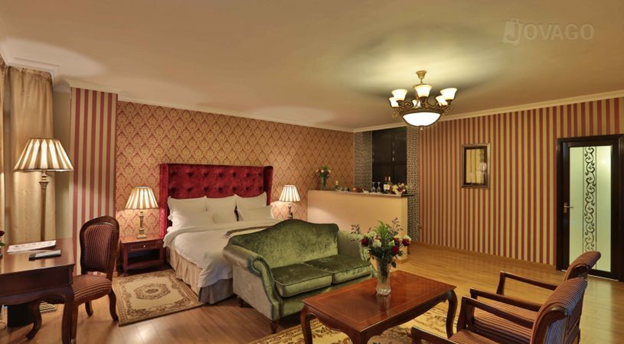While the Ethiopian economy continue to enjoy double digit growth, the hospitality sector is poised for further growth in the wake of increased number of inbound travelers into the country with expected opening of the AU Grand Hotel, Pullmann, Crowne Plaza,Wyndham Hotel Group, Crowne Plaza, Accor Group and Best Western.
Being the third largest diplomatic community in the world, following New York and Geneva, Addis Ababa has become home to several new star hotels. Conferences in the African Union and the United Nations Economic Commission for Africa have increased the demand for brand hotels bringing a huge chunk of foreign currency to the tourism economy. The city is home to the world’s third highest concentration of embassies bringing the majority of the diplomatic missions into the country. Large global bases for NGO’s, embassies and aid agencies also created massive market for the hotels.
To increase the number of hotels and lodges the country encouraged investors through tax and land incentives to bank loan arrangements. Such initiatives are to increase the current three international chain and seven internationally branded hotels. For the hotel industry, the best has come with the erection of new hotels all over the country. Despite the growing hotel constructions, Ethiopia is ranked among the top 10 largest African untapped markets for international chain hotel development according to the W Hospitality Group survey.
As number of diplomats, corporate and leisure travelers are growing the chain hotel groups are expanding in the capital. Growing the number of hotels is part of the plan to make Ethiopia one of the top five tourist destination in Africa in the coming four years enabling the country to use its tremendous tourism potential. To date the contribution of tourism to income revenue to Ethiopia’s economy has increased over the last three years from 17 billion Birr (US $ 814,730) in 2012 to 18.7 billion Birr (US $ 896,203) in 2013 and 22.2 billion birr (US $1,063,941) in 2014. The direct contribution of Travel & Tourism to GDP is 1.2% however with the development of infrastructure its contribution is expected to be 4.8% in 2024. On the other hand its job generation capacity by far exceeds that of the other labor-intensive sectors such as leather, floriculture and construction.
Addis Ababa has attracted significant investment into the Ethiopian hotel sector from major international brands and locals who are investing in hotels. This has largely shaped the type of supply in the hotel market aspiring to attract more luxuries accommodation facilities to come to business in Ethiopia. The growing number of investment permits issued for international brands evidence that in few years the accommodation facilities will meet the goal of having hotel verity that will satisfy every segment of travelers.
The easier access to finance, land and technical service expertise associated with attracting a brand hotel are driving the sector development. The latest branded entrants include Marriott Executive Apartments, Golden Tulip, Radisson Blu and Ramada. The remarkable economic growth and increasing corporate entry is driving hotel demand in the business and conference segment. The aid and diplomatic missions continue to provide the majority of the market demand in the capital and beyond.
Although there has been progress still branded hotels are very low. Last year only the capital city included 295 new rooms with quality supply of 31 hotels and a total of 3,130 rooms currently in the market, giving an average number of 100 rooms per hotel. Addis Ababa received an occupancy of 58% at an average daily rate of USD 220 in 2015 says JLL Hotel market outlook survey. Branded supply is still low, even with the soon to be additional presence from Starwood, Rezidor, and Louvre. However according to the Ethiopian investment commission the upcoming supply is predominantly branded.
Addis Ababa hotel market is mainly led by corporate, aid and diplomatic markets. The corporate market is primarily domestically driven, with a few presence of international companies such as Jumia Travel. Majority of the customers use 3-star unbranded hotels. Nevertheless with anticipated further economic growth of the country aligned with increase in international corporate entry into the market more branded hotels will come to the Ethiopian market to serve business travelers from all over the country. The 4- and 5-star markets are in turn primarily driven by the aid and diplomatic markets.
The government gave enduring promise to hotel development and tourism to reap the full advantage of the sector reducing infrastructural deficits. The capital city which previously had two branded hotel supply, have seen hotels in the pipeline which are expected to be operational in the next five years bringing the branded hotels number to more than a dozen.
By Eden Sahle

